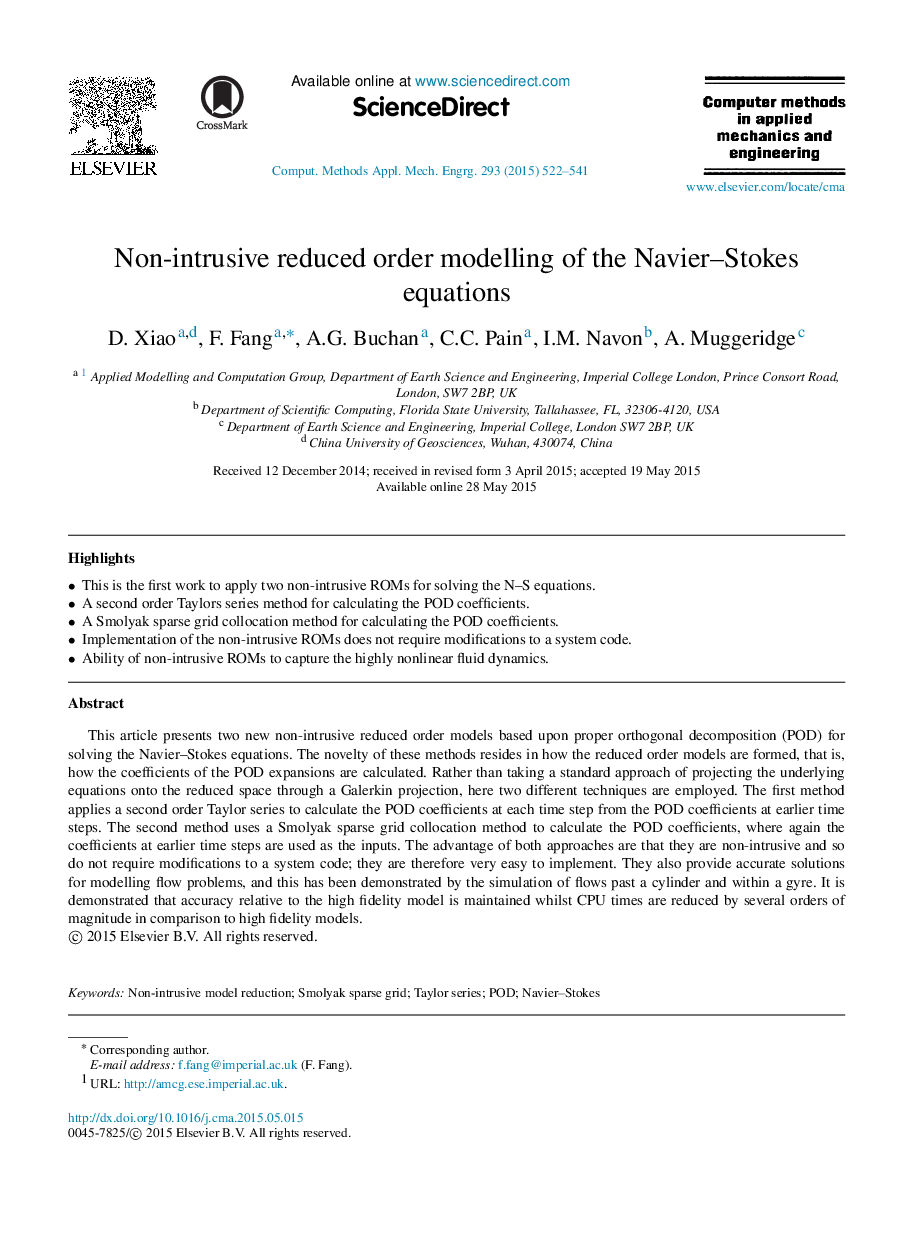| Article ID | Journal | Published Year | Pages | File Type |
|---|---|---|---|---|
| 6916961 | Computer Methods in Applied Mechanics and Engineering | 2015 | 20 Pages |
Abstract
This article presents two new non-intrusive reduced order models based upon proper orthogonal decomposition (POD) for solving the Navier-Stokes equations. The novelty of these methods resides in how the reduced order models are formed, that is, how the coefficients of the POD expansions are calculated. Rather than taking a standard approach of projecting the underlying equations onto the reduced space through a Galerkin projection, here two different techniques are employed. The first method applies a second order Taylor series to calculate the POD coefficients at each time step from the POD coefficients at earlier time steps. The second method uses a Smolyak sparse grid collocation method to calculate the POD coefficients, where again the coefficients at earlier time steps are used as the inputs. The advantage of both approaches are that they are non-intrusive and so do not require modifications to a system code; they are therefore very easy to implement. They also provide accurate solutions for modelling flow problems, and this has been demonstrated by the simulation of flows past a cylinder and within a gyre. It is demonstrated that accuracy relative to the high fidelity model is maintained whilst CPU times are reduced by several orders of magnitude in comparison to high fidelity models.
Keywords
Related Topics
Physical Sciences and Engineering
Computer Science
Computer Science Applications
Authors
D. Xiao, F. Fang, A.G. Buchan, C.C. Pain, I.M. Navon, A. Muggeridge,
